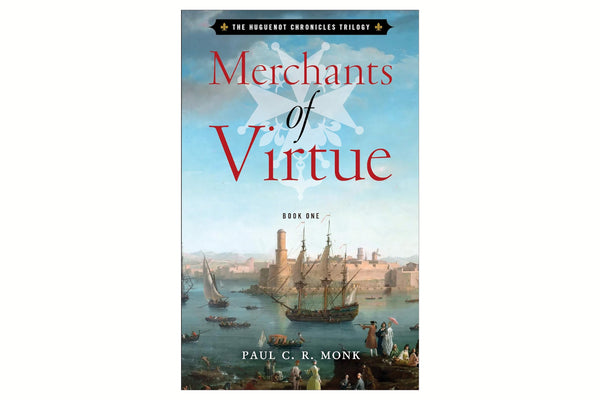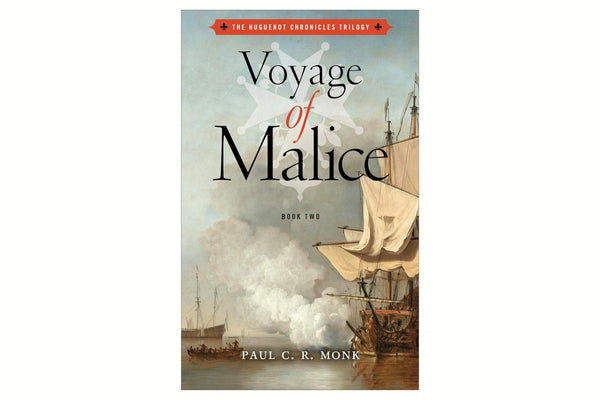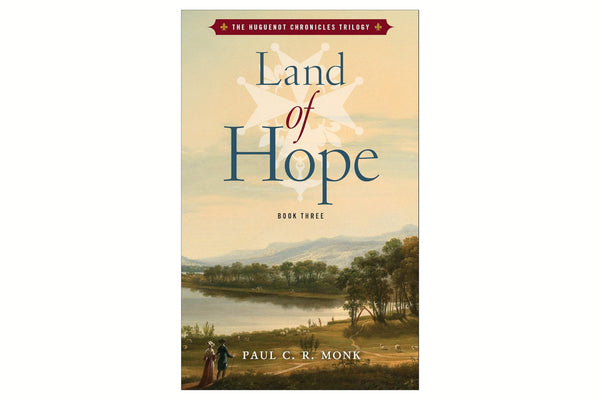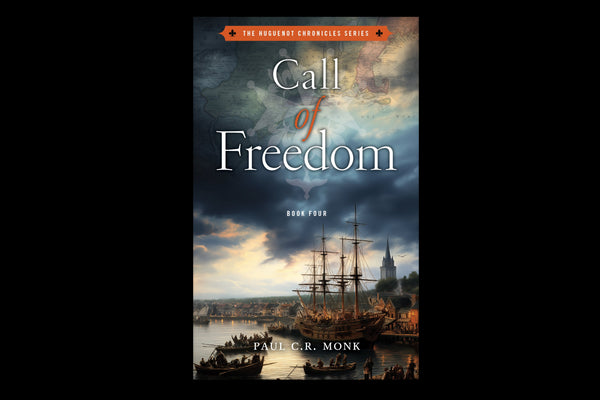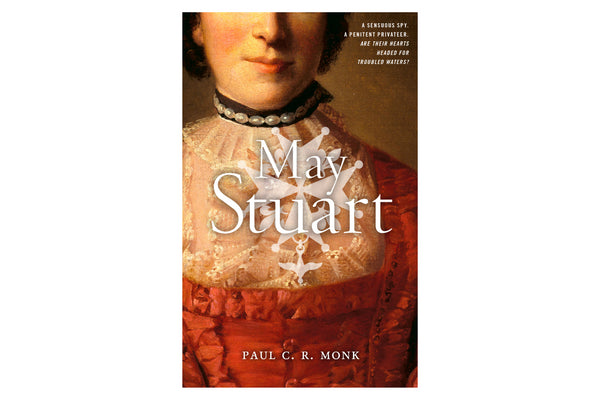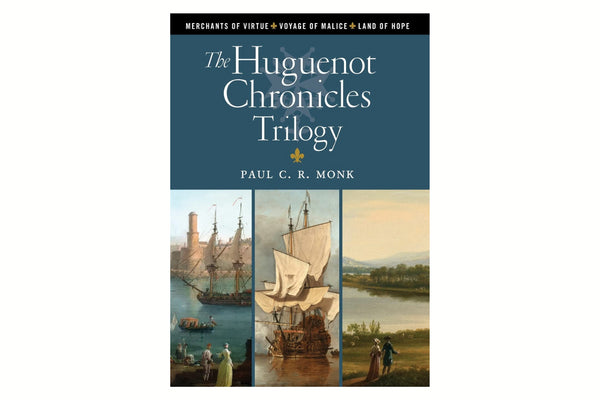Chapter 1
June 1699, Dublin
The Delpech Family
The 14th of June, 1689
Dear Jacob,
I hope this letter finds you in finer fettle after your long voyage back to England. I can well imagine how burdensome the long separation from your family must have been, especially now that I have a child of my own. Indeed, my dear Marianne has given me the most precious gift a man could ever hold in his two hands. Samuel Darlington was born last April 14th in this year of our Lord 1689.
But alas, he arrives in times of turmoil, and it is especially for this reason that I set quill to paper as I sit here wondering how long we shall hold out. Since your departure, Jacob, much has changed in our beloved New York. Jacob Leisler has taken command of the fort, having been elected by the Committee of Safety composed of two men from each county. With England embroiled in conflict between king and parliament, he and many burghers had feared that the papists in power here would leave our city open to attack from the French and their Indian allies from the north.
Under Leisler’s command, we have begun fortifying our city defences and securing provisions and ammunitions in case of attack. We are mercifully better protected now, and the people of our good city, though they hail from different parts of the globe, stand mostly united in the face of the adversary. Therefore, my dear friend, I strongly advise against you bringing your family here at this time. I fervently pray to God that my next correspondence will bring news of how chaos has been ordained and the situation brought under control here.
Your friend and servant,
Daniel Darlington
Standing at the front lattice window of the empty farmhouse in the countryside of Dublin, Jacob Delpech wondered what had become of his friend in New York. He looked again at the date on the letter and counted ten years almost to the day.
It was June 1699. The times of war were hopefully behind them for now, he thought to himself as he heard Jeanne calling to their eight-year-old son from outside. Jacob slipped Darlington’s creased and yellowing letter carefully back into his worn leather pouch of correspondence. Then he glanced through the window set with lead cames to see the distorted figure of young Pierre, squatting in the dappled shade of the acorn tree, holding two late-hatched goslings to his cheek. Jacob wondered about Daniel’s son, who would be two years older than Pierre.
Standing by the open cart at the end of the garden path, Jeanne watched her daughter, who was dressed for the chilly, damp weather, skipping away from her brother, two years her junior. ‘He says he doesn’t want to, Mother,’ said the girl. ‘He says he wants to stay.’
Lifting her skirts, Jeanne said to her daughter, ‘Jump into the cart, Isabelle, dear.’ Then, taking three strides to the gate, she called out to her son again: ‘Pierre! Pierre, put down those chicks and come along. We are leaving!’
Turning to his mother, the boy called back with insistence, ‘I want to stay here!’
But it was a young man’s voice from the opposite direction that joined the exchange and hollered cheerily, ‘Come on, Pierrot!’ It belonged to Paul, the boy’s elder brother by twelve years, who now closed the front door behind him and turned the large iron key in the lock. Young Pierre put down one of the chicks, which made a dash back to mother goose and its siblings. Moments later, Paul was giving his young brother a comradely pat on the back, as Pierre begrudgingly followed alongside as if he were walking to the gallows.
Knowing the boy’s bullishness, in a stern but conciliating tone of voice, Jeanne pressed on, ‘I know, Pierre, darling, but if I’ve told you once, I’ve told you a thousand times, it is for the best. There will be all sorts of animals where we are going, and you’ll find a host of new friends in America too, I’m sure. Besides, everything’s ready on the ship. Now come along, the tide won’t wait.’
‘But…’
The boy tested his mother’s patience once more, although deep down he knew there was no point insisting. He was soon sitting tucked in the cart beside her, but nonetheless with a secret smile at the corners of his mouth as he fed the chick in his overcoat pocket some grain to keep it quiet.
Two minutes later, dressed in his great brown cape, woollen breeches, boots, and a flat, broad-brimmed hat, Jacob emerged from the side of the house after securing the back door. He cheerfully called out across the front garden, noticing that the oak tree had at last fully donned its tender green sleeves, ‘Everyone aboard and tucked in?’
‘Yes, Papa!’ replied a chorus of voices in unison.
As Jacob heaved himself onto the cart and took the reins from his eldest son, there came a barking that everyone recognised. ‘She’s escaped again,’ said Paul flatly to his father, then jumped down to greet the setter frantically wagging its tail.
‘You ought to be at farmer Raffety’s, Jess. Wish we could take you with us, girl, but they won’t have dogs aboard the ship.’ The dog barked in disagreement.
‘You’d better climb up, Paul,’ said Jacob. ‘We don’t want to be late. Mr and Mrs Devanny will be waiting to pick up the cart.’ Paul turned back to the dog and told it to stay put.
‘She’ll follow us,’ said Isabelle sharply from the back of the cart.
‘Most likely,’ said Paul, ‘we’ll just have to leave her with old Liam on the way.’ He then climbed aboard, and Jacob clucked to the horse to giddy up.
A bright spell between the June clouds illuminated the green hills as the family cart turned out of the alley of trees that Jacob had planted eight years earlier. Warmly clad and sharing a woollen cover with her youngest children, Jeanne gave herself a moment to contemplate Les Chênes farmhouse for the last time.
As they rumbled along the stony track, for no particular reason, it occurred to her that some people were home-builders and stay-putters, and others were drifters and make-shifters. She unfalteringly belonged to the former, she thought to herself. She had indeed made a lovely home of their farm in Ireland, she concluded as she viewed the neat little farmhouse with its chimneys still smoking in the chilly June morning. Despite the short summers and the dingy skies compared to those of her homeland of southern France, she did not particularly want to leave these golden green fields. And yet, here she was being bundled away with her children again, not knowing what fortunes would meet them upon their arrival. But did she have a choice? The fact remained that, although they were the rightful owners of their farm, this was not their homeland, and neither was it likely to be that of their children. What could the future here hold in store for them? Would they be considered English, French, or Protestant Irish in a primarily Catholic country? A country where equal rights were being eroded.
So, she had conceded that Jacob was right. They needed a place where newcomers were welcome, a place they could unequivocally call home for generations to come, where the land was fat, the rivers teeming, and preferably, where the sun shone generously in the summer months. Could there be such a promised land on this earth? If so, could it be this New World Jacob had so often harped on about? Would there be room for them in this English colony on the far edge of the ocean? Jacob had reassured her that the charted wilderness alone was many times the size of the counties of France all put together.
As the cart trundled onward, it was all she could do to empty her mind and distance the thought that by leaving Ireland, she was also leaving her eldest daughter to live her life in France with her new husband. There, Protestantism was still banished, the king having “converted” the whole country to the old religion. With the end of the war between England and France, Elisabeth had finally been able to visit her parents the previous year, bringing along Isabelle, her young sister, who had been taken from Jeanne’s arms as a baby. Elisabeth had gone back to her life in France, leaving Isabelle with her parents.
But deep down, Jeanne knew that Elizabeth would be fine. Jeanne’s sister would see to it. And just as Jeanne herself had poured all her energy into her family after her parents died, when she was quite young, her daughter would lead her life enriched by the memories of her childhood, even though she and Jacob had been removed from Lizzy’s world in Montauban.
Leaving the farmstead behind them, the Delpech family headed in the direction of the flat ribbon of stonewalled track that meandered to the port of Dublin, where the ship to New York was waiting for the turn of the tide. ‘We managed to get them to load the chests and tools in the hold at the edge, close to the steps where we can see them. Didn’t we, Paul?’ said Jacob, making an effort to look to the future, having sensed the collective pang of leaving home.
‘Good,’ said Jeanne, coming back to herself. ‘And what about the grain? Did you see to it that it was stored well away from the damp?’
‘I did that, every barrel of it,’ replied Jacob. ‘And even if we did lose one, we’d still have enough grain to see us through our first year.’
‘I only hope that land you purchased is as good as you say it is, Jacob.’
‘The virgin topsoil of the valley is rich, deep, and is well exposed to the sun. What more can I say?’
Jeanne said nothing more. There was no point in adding doubt to an already risky enterprise. Besides, having been successful once, there was every reason to believe that, with God’s grace and the added advantage of experience, they would be successful in an even richer land. Her thoughts were interrupted by Jacob clucking the mare into a steady trot now that the bumpy trail continued into the wider, beaten track. This was the track countryfolk took to cart their produce to market.
Ten minutes later, Jacob turned off and pulled up the reins outside a ramshackle stone cottage where sheep and long-horned goats were penned in and grazing. They looked up in unison and baaed as the horse snorted and nickered on coming to a halt.
Moments later, as Jacob handed Paul the reins and alighted from the cart, a mid-aged man, with a weatherworn face and cheery grey eyes, stepped out from the small wooden door with a welcome chuckle and a wolfhound by his side. He pulled out his pipe from his mouth and doffed his cloth cap in greeting, revealing a thick shock of grey-and-black hair. ‘Ah, ’tis truly the day, then,’ he said, covering his head again. This was old Liam, a Catholic smallholder who had taken kindly to the French family from their very first spring at the farm. They had helped him save his lambs from the beaks of crows after a snowfall, not long after his wife had died the previous winter.
‘It is that. We’ll be going,’ said Jacob, having joined the old man three steps from the door. ‘It’s now or never, my old friend.’
‘I’ll be sorry to see you go, but I do see what you mean, Jacob. You’re not getting any younger, are ye? But you’ll have the boys. You’ll be a’right.’
‘Thank you, Liam,’ said Jacob as he shook the old man’s hand. Then, turning to the subject on every farmer’s mind, he said, ‘Any more sightings?’
‘Two sheep killed at O’Lorregan’s. That’s why I’m keeping mine around me just in case.’ The two men exchanged news of the series of killings from a pack of prowling wolves that had roamed into the district from the forest.
‘You take good care, my friend,’ said Jacob, who was keen to get on and did not want to let Liam get settled into a long rant. ‘Anyway, here’s the key.’ As Jacob handed over the large wrought iron key, there came a familiar bark, followed by the dog’s name being called out by the children tucked in the cart.
Needing no explanation, the old farmer called out to Paul. ‘Put her in the barn and bar the door, Paul!’
Jacob thanked the old man and said the dog would return to the farm where Tom Rafferty would find her. Meanwhile, Paul left the reins so that his mother could reach them, then stepped down and led Jess to the barn that adjoined the cottage.
A minute later, crouched in the dusty rays of sunlight that filtered through the barn hatch, Paul said to the dog, ‘You can’t come, Jess. You have to stay here now, where the smells are familiar to you.’ The young man, now alone with the animal, gave it a pat and a boyish hug. ‘Stay here now, Jess,’ he told her as he closed and barred the wooden door behind him, while the dog yapped its discontent.
Back in front of the cottage, Jacob was saying, ‘I have told the solicitor where to find the key.’
‘It be safe with me, Jacob, I only wish I could keep me neighbours, but I do understand, given your age, last chance to catch the tide, eh? But you’ll be a’right with the boys,’ he insisted, as if trying to persuade himself.
Two minutes later, old Liam was bidding farewell to Mrs Delpech and the children. Another two minutes after that, the old man was giving a last wave of his pipe, as the cart bearing the French family disappeared around the bend that took them back onto the beaten track to the city.
Liam joined his sheep and goats with his wolfhound, as he inwardly wished the Delpech family Godspeed. They would need it to cross the expanse of endless ocean, he told himself. The very thought of a lone ship heaving and pitching under the roll of the great waves made him glad to be among his sheep and the undulating hills south of Dublin. At least he knew where he was headed, and it gave him a strange inner comfort to know that one day, he would be lying beside his wife, Lilly, in the land he loved.
***
An hour later, the cart was trundling toward the gatehouse that gave access to the port, and Jacob suddenly wondered if he still had it in him.
He was a man past fifty. Men past fifty do not head out on an adventure, especially not with wife and children in tow. A man past fifty should be settled. He should have a select number of friends, friends who have stood the test of time. A man past fifty should have his business in good order, and a nest egg in case of times of hardship. A man past fifty should stand in the comforting thought that he and his family had a home for generations to come. Then it occurred to him that he had achieved all this at forty. He had been a jurist, a prominent businessman, a respected planter. Such a fickle friend was life, he thought to himself. But he had the strength back then to start again when he had lost everything. He had found it in God, and in the undying support of his wife, without which he would never have made it out of France.
This time, however, he would be putting his family’s lives at the mercy of the vast and indomitable ocean. Yet, the challenges would not end with the sea; they would also have to adapt to a new way of life. True, Paul had done so before, and their daughter Isabelle, who had been raised in France by her older sister and her aunt Susanne, had quickly picked up the language since she came to Ireland the previous spring. But what of little Pierre? He had never left the county, let alone embarked on a voyage to another world.
As they approached the tithe house, he felt an urge to cast a glance back into the cart where, except for Paul who was sitting beside him, his clutch was seated together with a blanket over their knees. His eyes instinctively caught those of Jeanne. He noticed they were glazed with emotion, and the fine delicate lines around them were more prominent in the morning light. She had aged as had he, but what she had shed in youthful beauty, she had gained in radiance. All this occurred to him in the instant their eyes locked. Then she blinked, smiled, and gave an encouraging nod that seemed to wave away all doubt. Her regard was now bold and steely. It felt to Jacob as though she had pressed her hand upon his forearm, the way she always did in times of adversity and dashed hopes.









